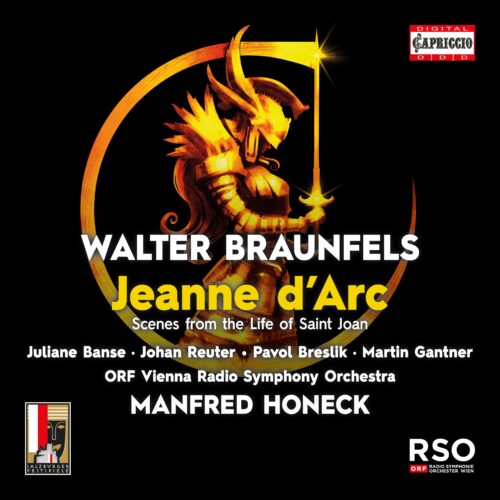I must confess to being a great fan of the music of Walter Braunfels (1882-1954). I discovered his sonic palette, at the crossroads of post-romantic and modern styles (a little Strauss, a little Korngold, a touch of Bartok and Mahler, maybe even Hindemith), when listening to Der Kaiser von Atlantis, a little opera barely an hour long but a great 20th-century masterpiece. Abandoned after the turmoil of the Second World War, and even before that because he was partly Jewish and therefore blacklisted by the Nazis, Braunfels could have become an icon of modern creation. History, and certain men, had other ideas. Fortunately, time is slowly making things right. We are hearing more and more of this composer of rare quality, and so much the better.
Here is a rare, but not unique recording (a Decca CD has already appeared, then disappeared, among others) of his opera Jeanne d’Arc, written between 1939 and 1943 and never heard by its author (Braunfels also wrote the libretto based on transcriptions of the 1431 trial and a text by George Bernard Shaw). This version brings together a star-studded, powerful and brilliantly expressive cast, convened as part of the Salzburg Festival 2013. On this occasion, apparently unique as only one evening’s performance took place, the immense talents of Juliane Banse and Johan Reuter in the roles of Jeanne and Gilles de Rais, could be heard by a privileged crowd. Jeanne’s strong-willed, incandescent character is harnessed with great force by Banse. Reuter is suitably vibrant with contradictory emotions, torn between his love (never historically confirmed) for Jeanne and the inner demons, already prescient, that would later make him, perhaps, history’s first serial killer. I’d also like to highlight Pavol Breslik’s fragile presence as Charles, the future Charles VII, crowned thanks to Jeanne. Manfred Honeck, an ardent supporter of Braunfels, conducts the powerful musical forces of the ORF Vienna Radio Symphony Orchestra, the Salzburger Bachchor and the Salzburger Festspiele und Theater Kinderchor, with great finesse and sonic dexterity. Oh, and those choirs! What a luminous presence. What heartfelt and sometimes piercing interventions! Braunfels’ choral score alone is a dominant character in the work. Magnificent.
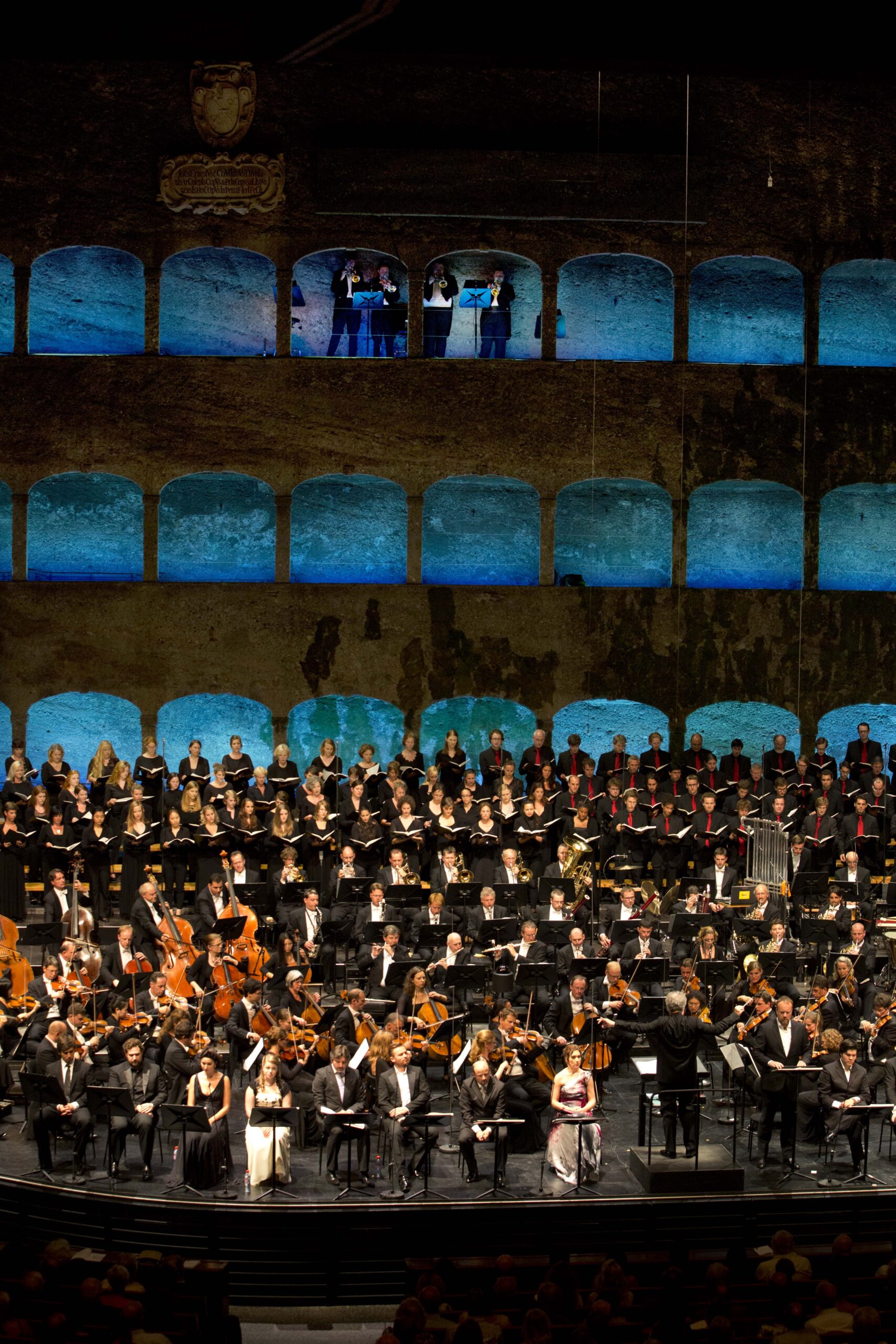
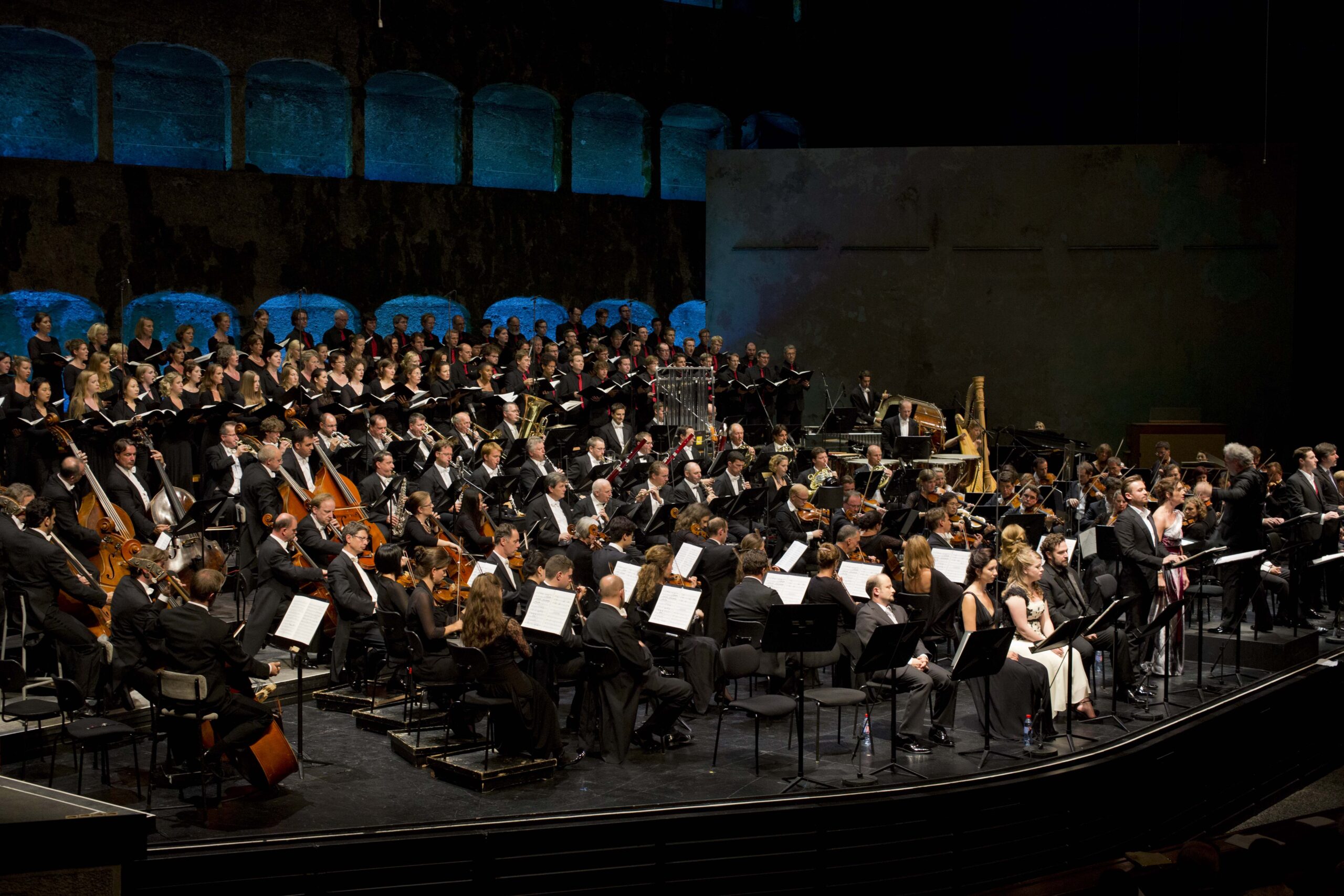
Festival de Salzbourg – 2013
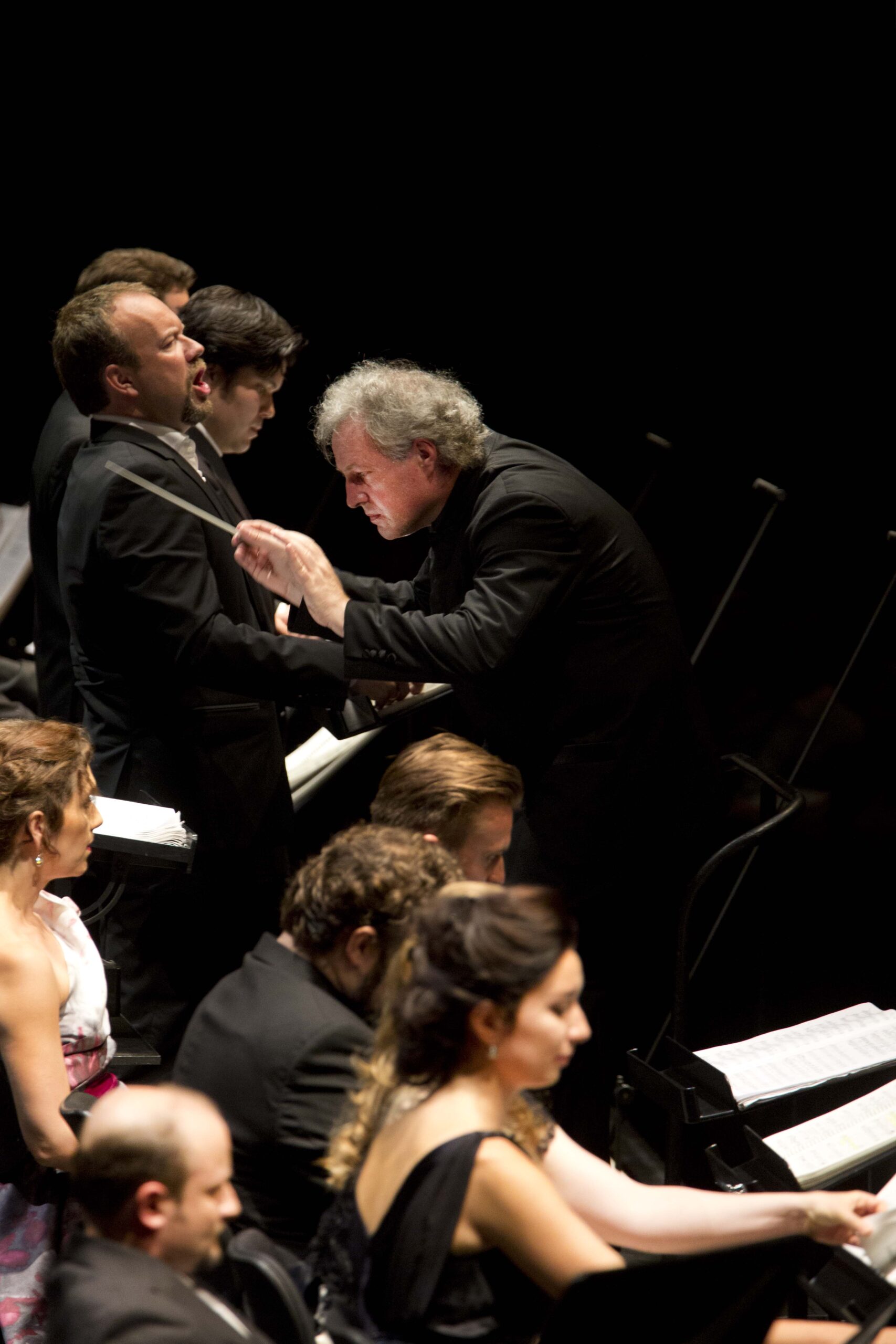
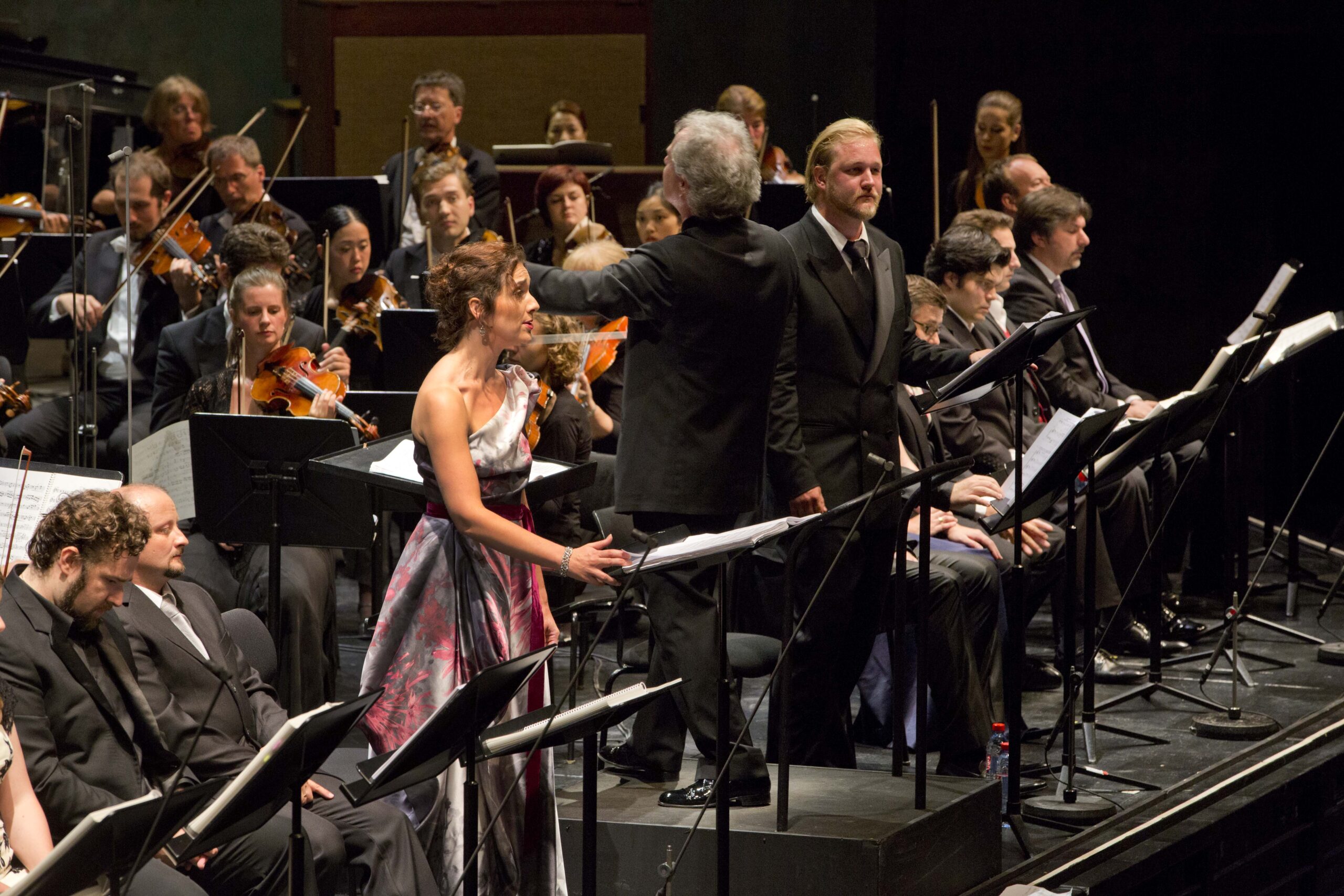
Braunfels’ skill lies in his attention to Jeanne’s personal interactions with those around her, rather than her political and mystical dimensions. In this way, he infuses her with a genuinely touching psychological life. There’s something intimate about it, despite the impressive scale of the musical forces involved.
Having never had the opportunity to hear the Decca version released in the early 2000s, I can’t make any comparisons. It also featured Juliane Banse, with Honeck conducting, but with a Swedish orchestra. That said, I doubt this Salzburg recording could be taken seriously at fault with the previous incarnation, especially as Banse can only have integrated her character even more intimately, and Honeck refined his reading of the rich score all the more.
The resurrected music of a brilliant and important composer, unjustly forgotten, could not benefit from a better presentation. A real treat.
